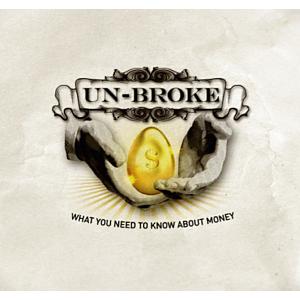In de aanloop naar het WK Voetbal in Zuid-Afrika roept bovenstaande titel zeker associaties op met deze edele balsport, en in zekere zin gaat het hier ook om FC Knudde op weg naar COP16 in november in Mexico. Op de valreep van zijn vertrek naar KPMG heeft Yvo de Boer bekend gemaakt dat de organisatie die hij jarenlang leidde (UNFCCC, de moederorganisatie van het IPCC) geen pecunia meer heeft om twee reeds geplande voorrondes te financieren.
“A number of countries made pledges for additional financial support,” he told reporters. “Some countries have followed up on those pledges and actually transferred the money, but we need more of those pledges to materialise before we can safely say there is enough in the bank to organise the additional meetings and fund the participation of people from developing countries.” Lees meer…
Tja, misschien moet Yvo’s opvolger, de Costaricaanse Christiana Figueres, het boek van bovenstaande toepasselijke cover-afbeelding eens lezen. Want dat nieuwe voorrondes nodig zullen zijn voor Cancun is duidelijk. In Bonn, waar slechts 4500 gedelegeerden bijeen zijn gekomen (een laagterecord), lopen de onderhandelingen momenteel spaak op dezelfde groep groep Zuid-Amerikaanse ALBA-landen die ook in Copenhagen dwars lagen. Deze landen willen Kyoto niet loslaten.
A number of countries have refused to support the Copenhagen Accord, which was thrashed out by the US, Brazil, South Africa, India and China, arguing that it favours rich nations, risks sidelining the existing Kyoto Protocol, and fails to set targets for curbing greenhouse gas emissions.
Aware of these concerns the Ad Hoc Working Group on Long-term Cooperative Action (AWG-LCA), chaired by Zimbabwean diplomat Margaret Mukahanana-Sangarwe, included only elements of the Copenhagen Accord in the new formal negotiating text alongside a host of different options.
Jonathan Pershing, head of the US delegation, told Reuters that the latest text was only intended as “a constructive next step” towards developing a formal negotiating text.
However, the move appears to have again antagonised the ALBA group and work is now underway to develop an alternative draft text that is expected to be presented before the end of the week.
The in-coming UN climate chief, Christiana Figueres, who it is hoped will help improve relations between industrialised and developing countries, recently expressed some sympathy for the ALBA group, telling Bloomberg that she shared their concerns about the Copenhagen Accord.
“Many of their concerns are very legitimate and shared not just by the immediate members of the ALBA countries but actually by quite a few countries around the world,” she said.
Na 1 juli zullen we zien welke troeven Figueres uit de hoge hoed kan toveren om van deze warboel nog iets te maken. Of wordt het toch “Tikkie terug Jaap?”. Het heeft er alle schijn van dat Kyoto het laatste omvattende en nooit meer vernieuwde klimaatakkoord zal blijken te zijn. Ondertussen zien we op deelterreinen wel vooruitgang of beter gezegd op één deelterrein: het stoppen van de kap van tropisch regenwoud. Lees even mee in hetzelfde verslag uit Bonn:
Meanwhile, other elements of the negotiations are expected to move forward over the next few days.
In particular, negotiations will continue on proposals for improving forestry protection, while the UN and developing countries are expected to step up pressure on industrialised nations to make good on their pledge to deliver $30bn (£20.7bn) of “fast-track” climate funding over the next three years, warning that the Mexico Summit will be seriously undermined if the first tranche of money is not made available by the autumn.
Both areas were given a boost last week when the Indonesian government announced that it would revoke existing forestry licenses handed out to palm oil and timber firms as part of a $1bn climate change deal signed with Norway.
Under the agreement, Indonesia will impose a two year moratorium on the clearing of natural forests and peatlands, while also cancelling some existing permits. Part of the new fund will be used to compensate forestry and palm oil firms, while the rest will aim to improve forestry protection and support pilot projects operating under the UN-backed reduced emissions from deforestation and degradation (REDD) scheme.
Hiermee zijn we terug bij het Hartwell Paper van onder meer Mike Hulme (zie artikel). Daarin wordt gepleit om “climate change” te behouden als uithangbord voor een veelheid aan ecologische doelen die vervolgens niet in de megalomane IPCC-stijl, maar in afzonderlijke politiek behapbare brokken worden nagejaagd. Dat zie je dan terug in de titel van dat steeds succesvollere UN-REDD programma: United Nations Collaborative Programme on Reducing Emissions from Deforestation and Forest Degradation in Developing Countries. Op Hulme’s visie kom ik snel terug mede op basis van een recente mailwisseling met hem, maar ik verklap mijn these al met onderstaande afsluitende vragen:
- Is het tropisch bos niet mooi en bijzonder genoeg?
- Waarom de wetenschappelijk steeds minder geloofwaardige hypothese van een fragiel klimaat overeind houden?
- Waarom alles koppelen aan “emissions” van sporengassen als CO2 en CH4?
- Waarom niet gewoon United Nations Collaborative Programme to Reduce Deforestation and Forest Degradation in Developing Countries?
- Of beter: waarom niet een kleine slanke particuliere organisatie onder leiding van onze nationale held Marc van Roosmalen (zie video Simon Roosendaal)
- Waarom?







Mijn stem heeft de Mos op 9 juni.
Emissierechten op het ongevaarlijke gas CO2 is kolder.
CO2 is plantenvoedsel.